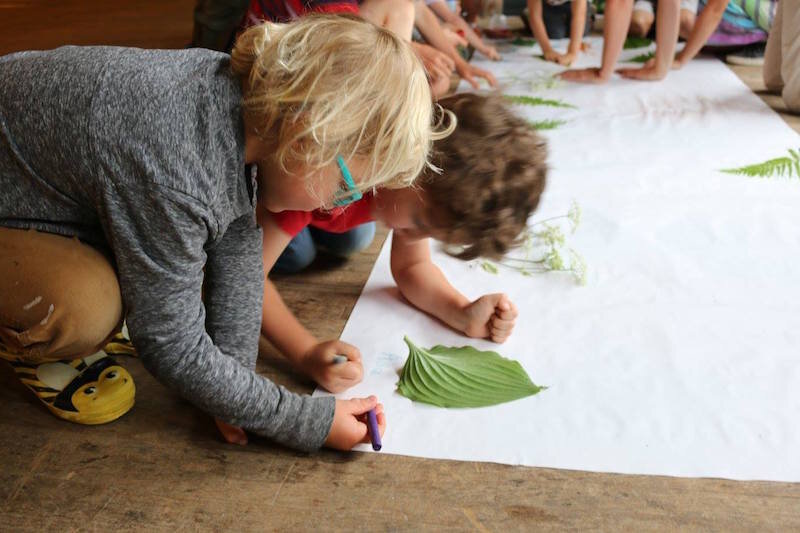Contemporaries in a Revolution
Around the age of five, I had a best friend named Jessica. Our fathers worked together, we “played” t-ball together (if picking flowers in the outfield is considered playing), so we saw each other often. I remember we were at a holiday dinner with a bunch of families at a large table and Jessica’s family had just gotten a new conversion van with a bed in the back. We were all going to our house for a party, and I innocently said, “I could ride with you all, and if we get tired, Jessica and I could fall asleep in the back.” Someone said something that I didn’t understand which ended with a harsh, “No way! Nice try, Kiddo!” When it happened, I felt ashamed, embarrassed, and confused. I was accused as having ulterior motives, but I didn’t understand that concept yet. I just knew that what I had said was a bad thing. I didn’t know what they thought I was trying to do. I honestly just wanted to hang out in their cool new conversion van bed. All I knew that people did was sleep in beds. The adults, however, inferred an adult motive on a child’s action.
This began my awareness that boys and girls cannot be “friends.” The new understanding of my relationship, as I navigated it through my confusion, was that there was this relational power with my female friend that I didn’t quite get. I was five, and my intentions were sexualized. I was a child, and my parents and their friends, while probably just picking on me for a couple of laughs between themselves, handed me a shaping experience. As a consequence, it altered my “friendships” with girls. My female friends had to be filtered through the new label of “girlfriend,” which holds an inherent sexual connotation.
It would also seem that this was my first introduction to toxic masculinity, patriarchy, and how society was going to shape and influence my identity. This paradigm shifting experience has become very relevant now as men that I have looked at as leaders are exposed as abusers with our current cultural lens. As a man (an identity with which I still struggle), I have began looking at my behaviors and what changes I can make to become a better role model to my children and the students who look up to me.
When I read about the accused “abusers,” while they did abuse another human, they also abused their power. Certain roles in our culture afford individuals power over others: partner, parent, teacher, supervisor, coach, doctor, etc. Another perspective flips this power and encourages subordination to people in those roles.
In her book Unequal Childhoods, Annette Lareau discusses how growing up within a particular social class, family structure, or race influences how individuals relate to people in power (among many other insights). So, I am currently pondering, how do we prepare our children to have a healthy relationship with power structures while encouraging grit? Or, how do we teach defenses against the darkness of the world without them being despondent?
Fred Rogers said his mother responded to scary news by telling him, “Look for the helpers.” Likewise, when I read the news of a world that is dark and scary, I look for examples of a world that is full of love and support. Evaluating leaders with this lens encourages students who are inclined towards power to see the esteem that surrounds heroism, instead of how our culture incentivizes narcissism.
I see the effect of this emphasis everyday in our classrooms. We are cultivating helpers. With our youngest community members, I have found that some tend to be more physical with their expression. Last week I watched a young student walk past a buddy and give him a little shove, they made eyes, grinned with the purest affection, and went about their day. Touch, “good” or “bad” (as interpretation can vary), can equate to affection.
Unfortunately, sometimes the intention and the interpretation do not match up, which leads to an incongruence. Of course, peace talks and conflict resolution offer closure, and asking before touching (hugging, hand shakes, high fives, etc.) is the rule. In other words, we are teaching consent. When Tina or I ask for a hug or high five, I have found that most of the children will give an excited, “yes,” but sometimes they say, “no thank you.” When they decline our offers, we quickly compliment them on their self awareness and bravery to speak it.
For the children in our community, consent and boundary lessons begin day one, which act as the foundation of healthy relationships and self worth. Clearly we are contemporaries in a revolution trying to sort out how abusive behavior can be so prevalent. We are looking for causes, definitions, and solutions. We are clarifying roles, responsibilities, and consequences. And our charge as parents and teachers (as always) is to prepare our children for a changing future.
Written by Nick Pearl


